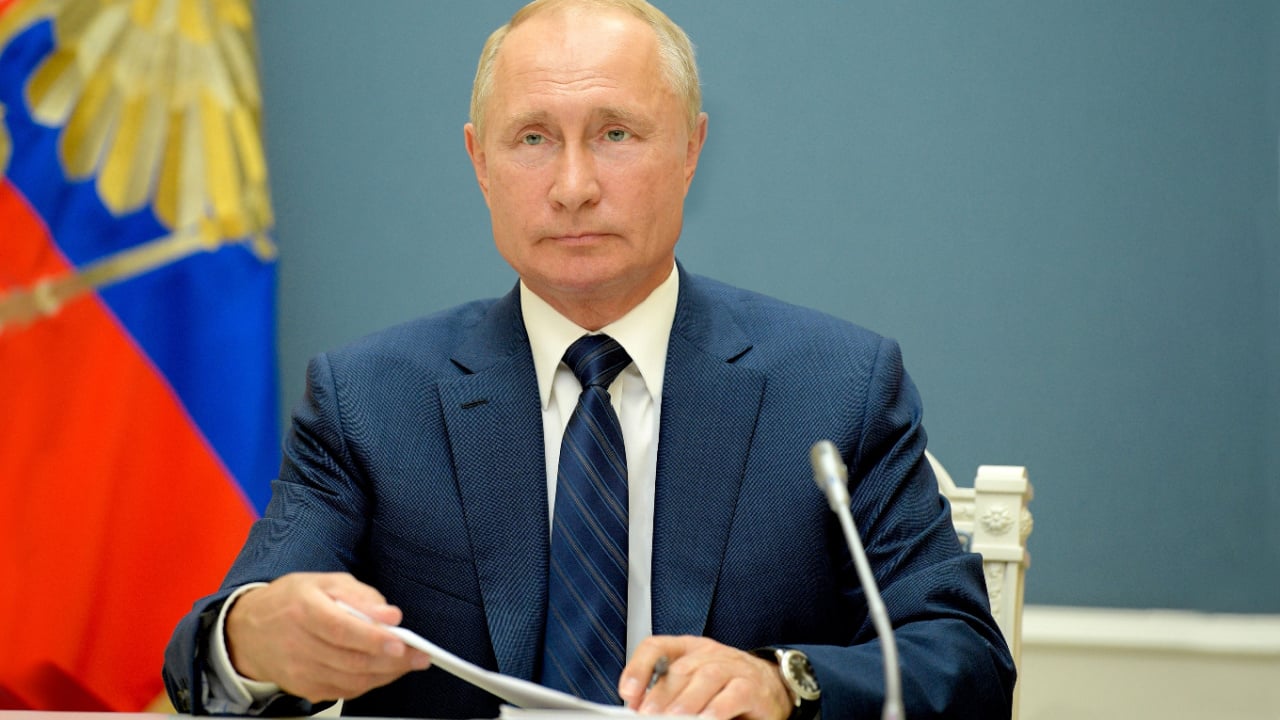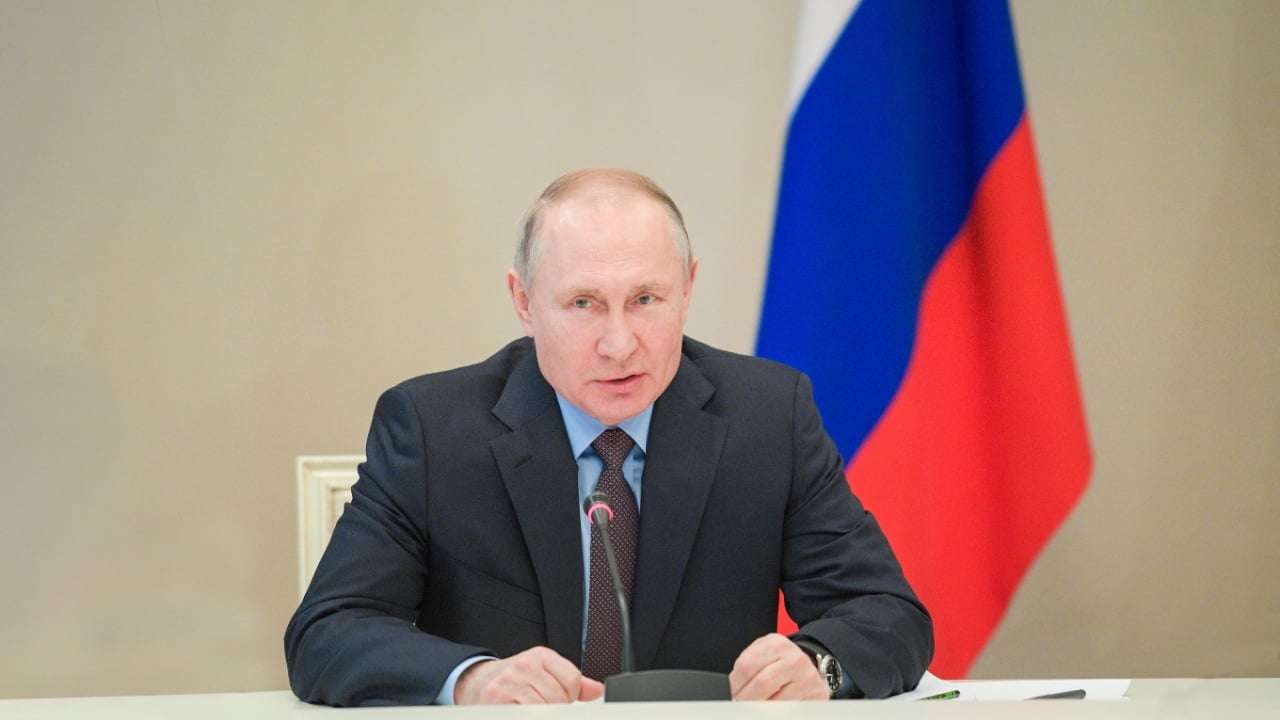Russia Now Wants Alaska Back from America
Some Russian commentators, fueled by nationalist rhetoric, have continued to suggest that Alaska should be returned to Russia, despite the fact that the territory was legally purchased by the United States in 1867.
Summary and Key Points: Some Russian commentators, fueled by nationalist rhetoric, have continued to suggest that Alaska should be returned to Russia, despite the fact that the territory was legally purchased by the United States in 1867.

-This notion has resurfaced recently, with propagandist Olga Skabeyeva and Russian lawmakers like Oleg Matveychev calling for Alaska's return. However, these claims are entirely baseless, as Alaska was sold to the U.S. for $7.2 million in a legitimate transaction.
-The deal, initially criticized in the U.S. as "Seward's Folly," proved valuable after the discovery of gold and later, oil. American officials, including Alaska's Governor Mike Dunleavy, have dismissed these Russian claims with strong opposition.
Russian Commentators Can't Accept that Moscow Will Never Get Alaska Back
There is a common misconception that the United States was largely "stolen" from indigenous people. It's actually quite complicated because while it is true that someone was there before the European and later American settlers arrived, the U.S. was largely purchased.
Much of the land west of the Mississippi River was acquired from France as the Louisiana Purchase in 1803, and while it didn't include parts of what was then Spanish-America, the United States did later pay Mexico for the territory obtained after the Mexican-American War (1846-48). Additional land in what is today Arizona and New Mexico was acquired via the Gadsden Purchase in 1853. The United States also bought the Danish West Indies in 1917, with the islands now today the U.S. Virgin Islands.
All this is important to note, because few (if anyone) in Paris or Copenhagen ever called for the land back – and while there have been calls from some Mexicans who have suggested the Treaty of Guadalupe be annulled, no one takes it the least bit seriously.
Yet, in Moscow, there remain critics who seriously believe Alaska should be returned to Russia, along with other territory that was once controlled by the Czars. The latest was propagandist Olga Skabeyeva, who on Sunday's broadcast of the Russia-1 news program 60 Minutes described the 49th American state as "our Alaska" while discussing the recent joint Russian-Chinese deployment of bombers with the Alaska Air Defense Identification Zone (ADIZ).
Skabeyeva must have missed the memo that Russian North America as it was known was sold to the United States in 1867. This wasn't the first time that Russian pundits on state TV have suggested that Alaska and other historic lands should be returned to Moscow's control.
Russian Lawmakers Have Called for Alaska's Return
It was two years ago that Oleg Matveychev, a member of the Russian Duma, called for reparations from the United States that included the return of Alaska as well as a historic settlement in California. Both Alaska and Fort Ross in California were once part of the Russian Empire in the late 18th and 19th centuries before being sold to the United States.
Matveychev's argument was clearly in line with that of Russian Federation President Vladimir Putin, who had attempted to justify Russia's domination over Ukraine by suggesting the land was once controlled by Moscow.

Of course, any suggestion of a return of Alaska to Russia is entirely without merit. The 49th State wasn't acquired by the United States via conquest or even annexation. It was sold by Russia to the United States for $7.2 million – roughly two cents per acre – in March 1867. It gave the United States 375 million more acres of land, and was the third-largest land deal in history, after the 1803 Louisiana Purchase from France – the second-largest land deal – provided an additional 512 million additional acres.
For the record, the largest "land deal" was really a treaty without money changing lands. The 1494 Treaty of Tordesillas essentially split the lands outside Europe between Spain and Portugal, then the world's largest superpowers. Spain seems to have gotten the better deal, gaining control of much of modern-day Latin America – but Portugal was granted lands in Africa and the Far East.
Russia Was Also an Eager Seller of Alaska
As for the sale of Alaska, the deal had taken some time to work out, and Russia could only be described at the time as an "eager seller."
Fearing another war with Great Britain, Russia first approached the United States about selling the territory during the administration of President James Buchanan, but negotiations were stalled by the outbreak of the Civil War. Russia feared if war came with Britain it would be unable to defend the distant territory, which bordered British Columbia, and it also sought to bolster its struggling finances.
The deal was closed after the American Civil War, but many Americans thought it was a wasteful investment.
Critics of the deal called it "Seward's Folly" or "Seward's Icebox" as the Treaty with Russia was negotiated and signed by Secretary of State William Seward and Russian Minister to the United States Edouard de Stoeckl.
Those opposed saw it as little more than a frozen tundra that offered few prospects for settlers. It should be remembered that at the time the "American frontier" was still ripe with opportunity, and few saw a need for land that most would never venture to.
That sentiment changed when gold was discovered in 1898, and today Alaska is a major provider of domestic oil. It is clear that Russia may have negotiated a bad deal (at least for them) in selling the territory, which could explain why they want it back. Yet, even the suggestion of Russian claims over Alaska has been met with strong words from U.S. lawmakers.
"Good luck with that! Not if we have something to say about it. We have hundreds of thousands of armed Alaskans and military members that will see it differently," tweeted Alaska's Republican Governor Mike Dunleavy (@GovDunleavy) in 2022 when Matveychev's claims were first made.
Author Experience and Expertise: Peter Suciu
Peter Suciu is a Michigan-based writer. He has contributed to more than four dozen magazines, newspapers, and websites with over 3,200 published pieces over a twenty-year career in journalism. He regularly writes about military hardware, firearms history, cybersecurity, politics, and international affairs. Peter is also a Contributing Writer for Forbes and Clearance Jobs. You can follow him on Twitter: @PeterSuciu. You can email the author: [email protected].
All images are Creative Commons and/or Shutterstock.


